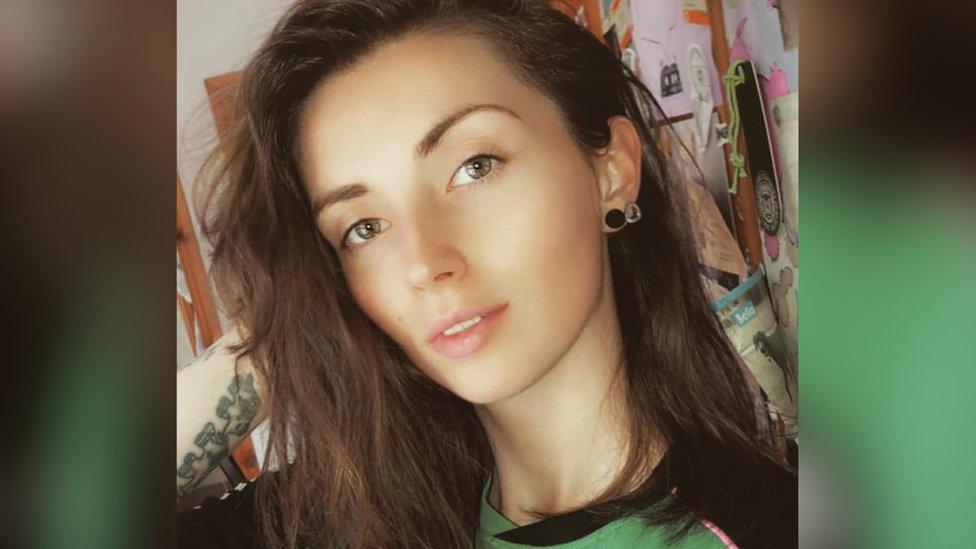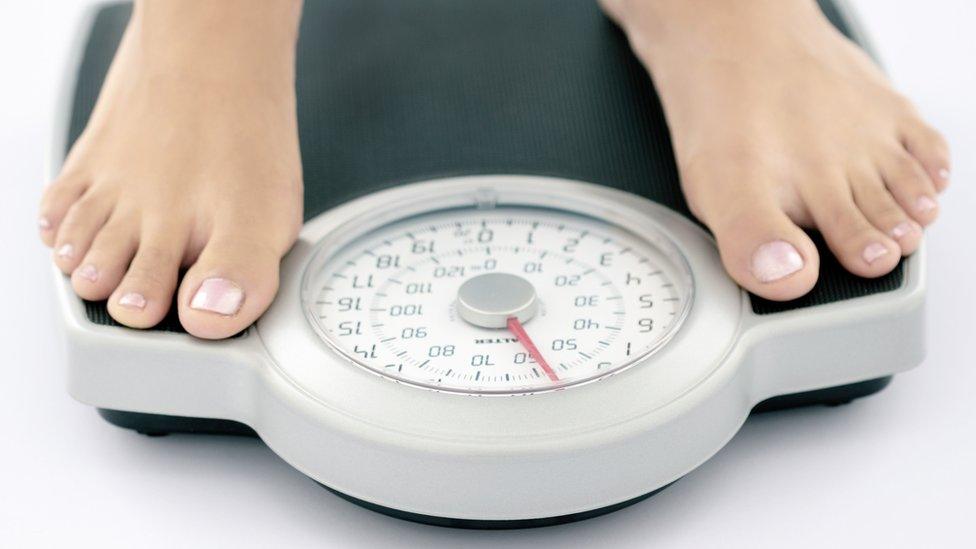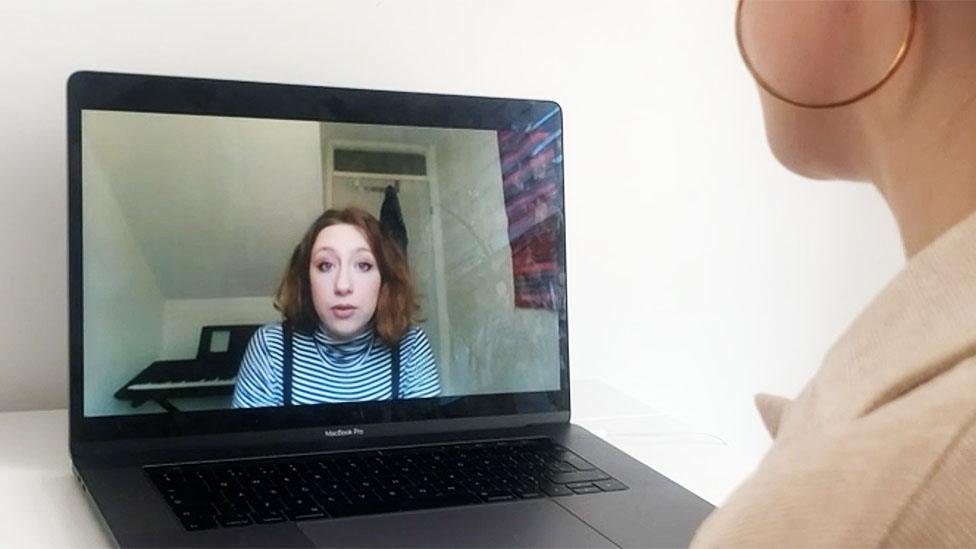Anorexia nervosa: 'Calorie counting became my obsession'
- Published
Anorexia nervosa: 'Calorie counting became my obsession'
"Anorexia is like having a little demon inside your head saying, 'you're fat, you can't eat that and you need to exercise more'."
When Niamh Wynne was told that her eating disorder meant she may never have children, she knew something had to change.
Her periods stopped due to eating excessively low calories and doctors warned that she could end up in hospital.
The turning point was when Niamh realised how much anorexia was affecting her family as well as her own future.
Now, aged 23, Niamh has beaten anorexia, she is attending university and is in a happy relationship with two children.
'It became obsessive'
Niamh, moved to Donemana in County Tyrone from England when she was nine-years-old.
Speaking before lockdown was introduced in March, she said when she was a teenager she saw herself as the 'bigger' one in her friendship group and envied her classmates who were able to wear nice clothes to teenage discos.
Her obsession with counting calories began after a GCSE biology lesson where she was educated on the importance of healthy eating and she realised she could diet to lose weight.
Her weight loss began healthily by tracking how many calories she ate but once she started noticing a change in her appearance, it became obsessive.
"I was obsessed with tracking everything I ate on an app on my phone," she said.
"I thought this was great, I could see how much I could restrict myself."
Whenever she lost a stone, she would challenge herself to lose another one.
"Every Tuesday morning I would weigh myself and keep a list of what I weighed. The list soon became miles long," she said.
"If there were days when the scales went up, it would ruin my day."

'I over-exercised massively'
Before she started dieting, Niamh wore a UK size 18 to 20 in clothes and she eventually dropped to a UK size four to six.
She only ate low fat and low calorie foods and often skipped meals, eating as little as possible to keep her body functioning.
"I over-exercised massively, I used to walk miles and miles every day," she said.
"I got to a healthy weight and I thought, 'I'll stop here', but then a little voice in my head was like 'no, keep going.'
"It affects every bit of your life, it's not all about food, it affects your mental health a lot."
The physical effects of eating so little food soon began to take its toll on Niamh's body.
"At my heaviest I weighed 15 stone and at my lightest I weighed seven-and-a-half stone, so it was exactly half my body weight," she said.
"My hair fell out, my nails were breaking, my teeth were sore. Your body grows another layer of hair to protect itself. It was really strange.
"I couldn't see that I had a problem, it was my mum who took me to the doctor."

Niamh joined a women's rugby team and started weight training at the gym
Wake up call
There were days when she would only eat 800 calories, far lower than recommended 2,000 for women.
Due to the drastic lack of calories, Niamh's periods stopped.
"That's one of the first things to go when you stop eating so much - your periods," she said.
"Obviously if you don't have a period, you'll not be able to have children."
Niamh went to her GP and was referred to a psychologist for counselling and she began to build a healthier relationship with food.
She joined a women's rugby team and started exercising to build muscle and get stronger, rather than to punish herself.
"It made me realise that I don't need to be skinny because there's a position for every size and shape of player on the rugby pitch," she said.
"I can go to the gym and I don't have to be losing weight. I can do it to get stronger so I can play rugby."
She now has two children - two-year-old Dairé, and a nine-month-old baby, Cathal, and she lives with her boyfriend, Ruairi.

Waiting lists
Brídín McKenna, a psychotherapist and eating disorder clinician, said in Northern Ireland there are increasing numbers of complex eating disorders with "sufferers both female and male growing ever younger."
"Disturbingly the youngest patient we have seen this year has been an 11-year-old child," she said.
She said people seeking treatment for eating disorders are "facing waiting lists of up to two years, which is both appalling and life threatening".
"Early intervention is critical for anorexia nervosa and can save lives."
If you or someone you know is struggling with issues raised by this story, find support through the BBC Action Line.
- Published14 June 2020

- Published30 July 2020
